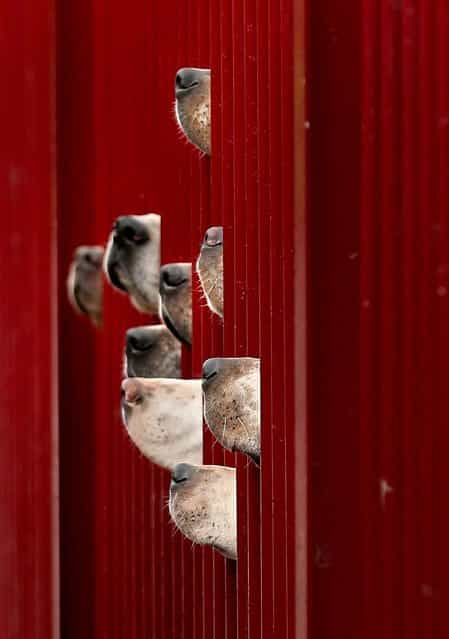BASE Jumping
Advertisements:
[BASE jumping, also sometimes written as B.A.S.E jumping, is an activity that employs an initially packed parachute to jump from fixed objects. [B.A.S.E.] is an acronym that stands for four categories of fixed objects from which one can jump: buildings, antennas, spans (bridges), and earth (cliffs).
The acronym [B.A.S.E.] was coined by filmmaker Carl Boenish, his wife Jean Boenish, Phil Smith, and Phil Mayfield. Carl was the real catalyst behind modern BASE jumping, and in 1978, he filmed the first BASE jumps to be made using ram-air parachutes and the freefall tracking technique (from El Capitan, in Yosemite National Park). While BASE jumps had been made prior to that time, the El Capitan activity was the effective birth of what is now called BASE jumping. BASE jumping is significantly more dangerous than similar sports such as skydiving from aircraft, and is currently regarded by many as a fringe extreme sport or stunt.
BASE numbers are awarded to those who have made at least one jump from each of the four categories (buildings, antennas, spans and earth). When Phil Smith and Phil Mayfield jumped together from a Houston skyscraper on 18 January 1981, they became the first to attain the exclusive BASE numbers (BASE #1 and #2, respectively), having already jumped from an antenna, spans, and earthen objects. Jean and Carl Boenish qualified for BASE numbers 3 and 4 soon after. A separate [award] was soon enacted for Night BASE jumping when Mayfield completed each category at night, becoming Night BASE #1, with Smith qualifying a few weeks later.
During the early eighties, nearly all BASE jumps were made using standard skydiving equipment, including two parachutes (main and reserve), and deployment components. Later on, specialized equipment and techniques were developed that were designed specifically for the unique needs of BASE jumping]. – Wikipedia
The acronym [B.A.S.E.] was coined by filmmaker Carl Boenish, his wife Jean Boenish, Phil Smith, and Phil Mayfield. Carl was the real catalyst behind modern BASE jumping, and in 1978, he filmed the first BASE jumps to be made using ram-air parachutes and the freefall tracking technique (from El Capitan, in Yosemite National Park). While BASE jumps had been made prior to that time, the El Capitan activity was the effective birth of what is now called BASE jumping. BASE jumping is significantly more dangerous than similar sports such as skydiving from aircraft, and is currently regarded by many as a fringe extreme sport or stunt.
BASE numbers are awarded to those who have made at least one jump from each of the four categories (buildings, antennas, spans and earth). When Phil Smith and Phil Mayfield jumped together from a Houston skyscraper on 18 January 1981, they became the first to attain the exclusive BASE numbers (BASE #1 and #2, respectively), having already jumped from an antenna, spans, and earthen objects. Jean and Carl Boenish qualified for BASE numbers 3 and 4 soon after. A separate [award] was soon enacted for Night BASE jumping when Mayfield completed each category at night, becoming Night BASE #1, with Smith qualifying a few weeks later.
During the early eighties, nearly all BASE jumps were made using standard skydiving equipment, including two parachutes (main and reserve), and deployment components. Later on, specialized equipment and techniques were developed that were designed specifically for the unique needs of BASE jumping]. – Wikipedia
Felix Baumgartner, world-renowned B.A.S.E jumper, is pictured in this undated handout photo. Baumgartner will attempt the first unpowered crossing of the strait between England and France. (Photo by Red Bull via Getty Images)
A BASE jumper plummets to the bottom of the New River Gorge after jumping off the 876 foot high New River Bridge during Bridge Day October 18, 2003 in New River Gorge, West Virginia. Over 800 people from around the world parachuted or rappelled from the bridge which is 2nd highest in the United States. (Jeff Swensen/Getty Images)
In this handout image supplied by Euro-Newsroom, Russian extreme sport star Valery Rozov jumps off Europe's highest mountain, Mount Elbrus, wearing a wing-suit , on September 10, 2008 near Mineralnye Vody, Russia. The 43-year-old Russian spent two days climbing to the 4,600-meter summit of Kiukurtliu Cupola, part of Mt Elbrus, before breaking the record for Europe's highest jump with his one minute flight. (Photo by Thomas Senf/Euro-Newsroom via Getty Images)
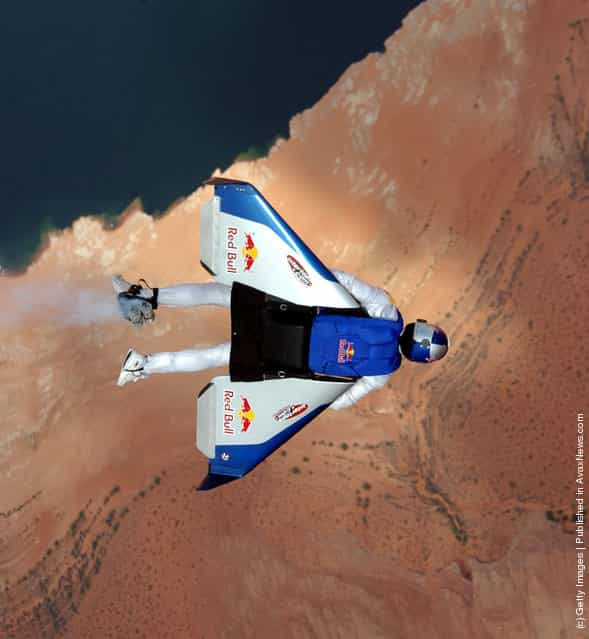
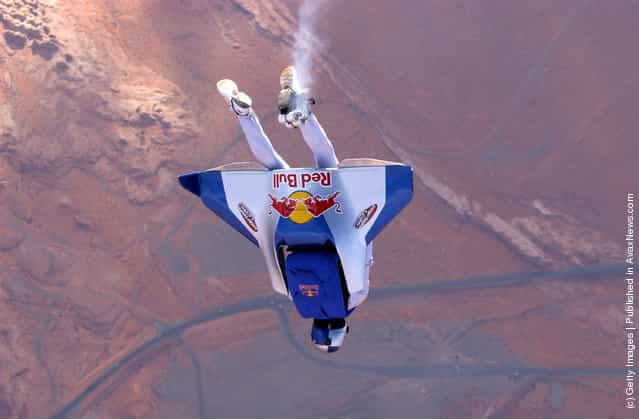
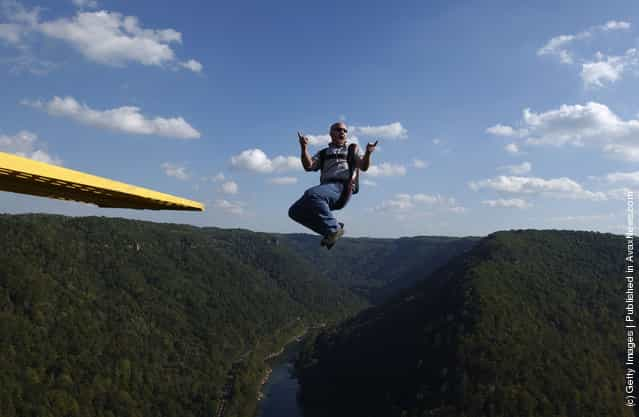
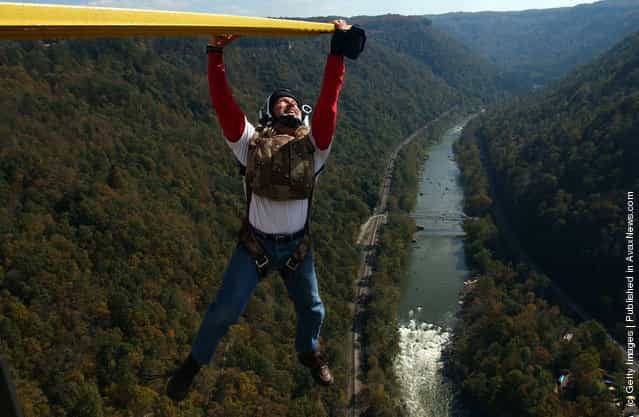
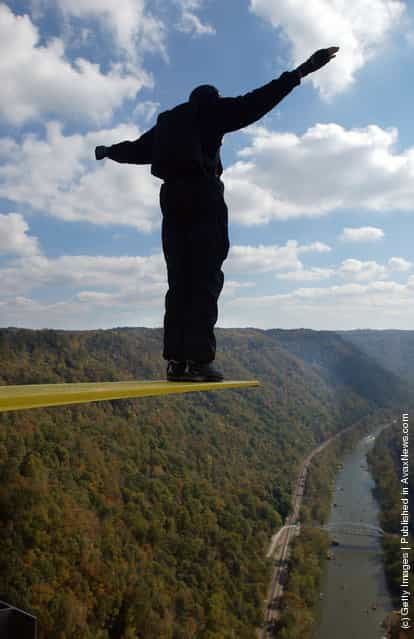
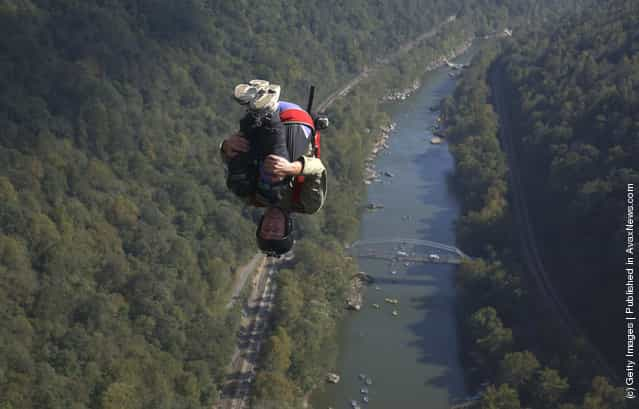
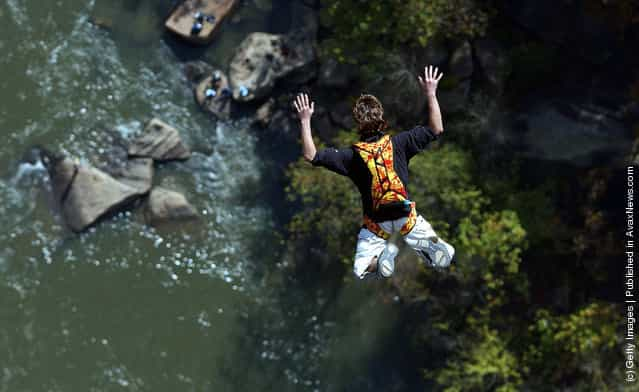
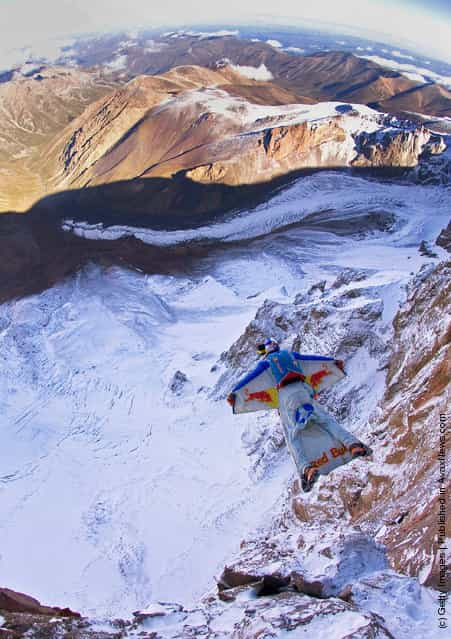
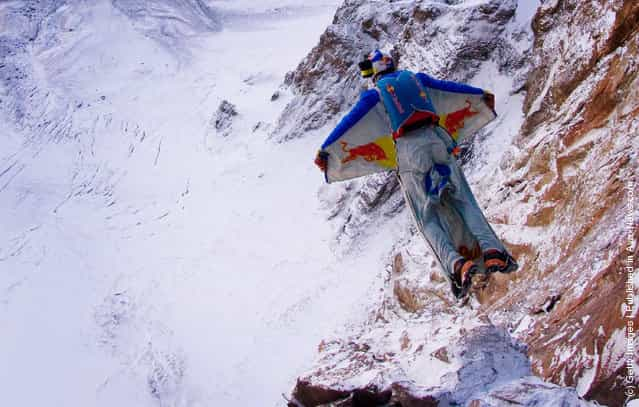


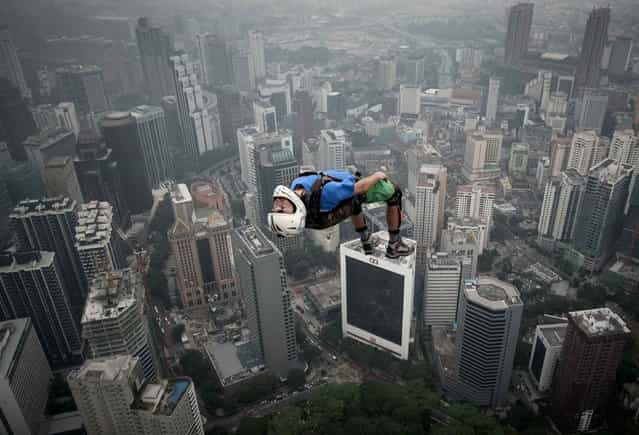

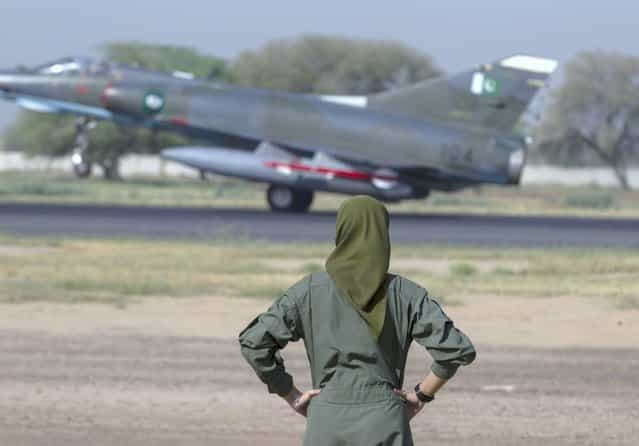

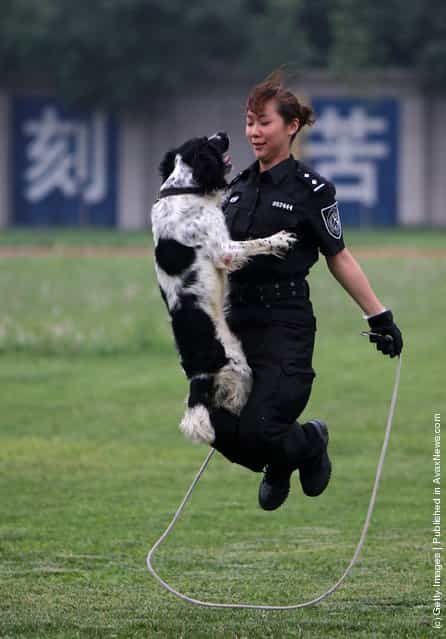
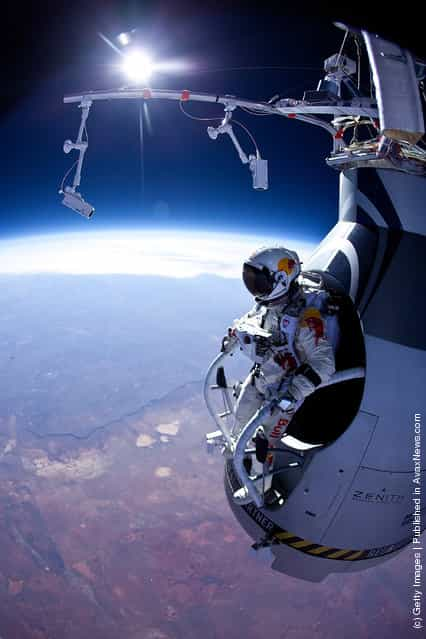

![Rare [Hybrid] Total Solar Eclipse Rare [Hybrid] Total Solar Eclipse](http://img.gagdaily.com/uploads/posts/fact/2013/short/00010c55_medium.jpg)





